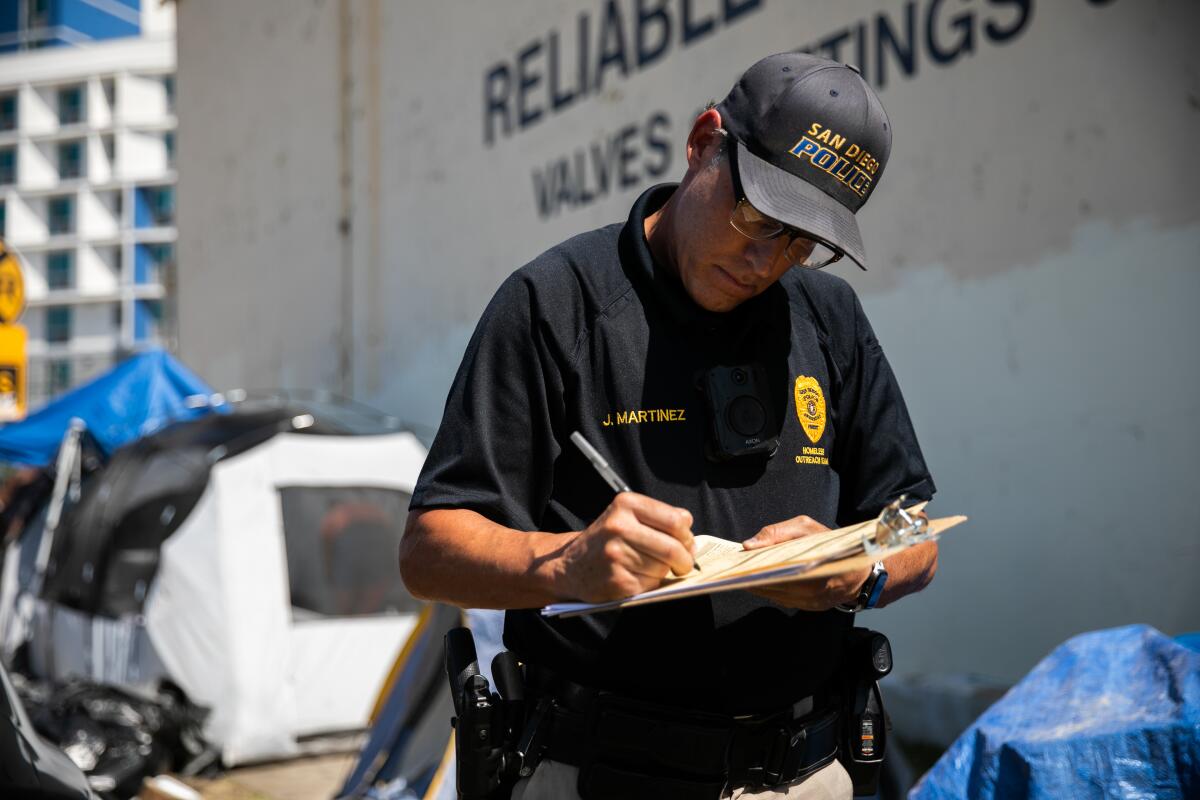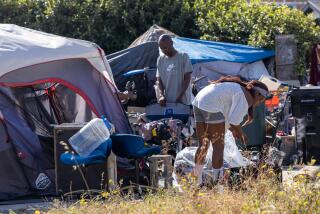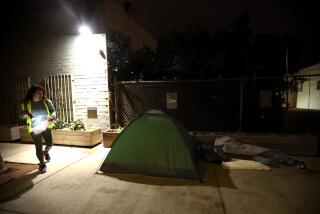Cities small and large outshine L.A. at finding emergency housing for homeless people

- Share via
Jessica Felix had no idea what she was going to do. In May 2021, the 30-year-old single mother was staying in a shelter in Chula Vista.
With few options for finding a permanent, affordable place to live with her five children under the age of 13, she was distraught. She applied for an emergency housing voucher as a last resort, but she didn’t expect much would come of it.
Felix had unsuccessfully applied for a Section 8 voucher before, waiting months for a response. This time, the San Diego Housing Commission, which serves the city, got back to her “right away,” she said.
“That was in July last year. But I didn’t get into a home until November of last year because I wasn’t accepted accepted,” she said. “I had applied but I had to get the paperwork and everything and had to do the orientation. So I finally actually got my voucher in mid-October.”
A home wasn’t far behind.
As the eighth most populous city in the U.S., San Diego faces many of the same housing challenges as Los Angeles, including high rents and low vacancy rates. Both cities have been struggling to address homelessness for decades.
The U.S. Department of Housing and Urban Development issued San Diego 480 vouchers in July 2021. As of Thursday, 385 had been leased out, according to Azucena Valladolid, who runs the commission’s rental assistance program. That means 385 people or families had received a voucher and moved into permanent housing.
Compare that with the city of L.A., which was issued 3,365 emergency housing vouchers. By Thursday, the city had managed to house 196 people or families and make initial payments to their landlords. As of Thursday, San Diego’s leased-out rate was nearly 14 times higher than L.A.’s, about 80.2% compared with 5.8%.
San Diego’s housing commission hired five full-time employees to help people get housed, did extensive community outreach and provided financial incentives to landlords, Valladolid said.
“The average time to lease an EHV household after they receive their vouchers is 51 days,” she said. “It’s definitely reached the people that it’s intended to.”
Felix’s calls to the San Diego Housing Commission bounced for days from one bureaucrat to another. “I was calling them and calling them,” she said, “like, ‘I don’t know what to do. We’re on the streets now.’”
A caseworker with the housing commission ultimately helped her navigate the voucher process. In the second week of November — less than a month after she was issued her voucher — Felix and her children moved into a two-story, four-bedroom house in San Diego with a balcony and yard.
“I thought [the EHV program] was fake and it wasn’t going to happen,” she said. “So when it did, I was like, ‘Oh my gosh,’ because I’ve applied for other programs and they all fell through.”
And then there’s the Housing Authority of San Luis Obispo, which serves the county, including the city of San Luis Obispo. By early December, the agency had leased out its initial allotment of 156 vouchers, according to Elaine Archer, the agency’s director of housing management.
That quick turnaround earned San Luis Obispo County — population around 280,000 — another 40 emergency housing vouchers from HUD in April.
Archer said that financial incentives, deliberate staffing and partnerships with local organizations have been key factors in the county’s success housing people via emergency vouchers.
“This is a very cooperative community. We work together really well,” she said in an interview last month at her San Luis Obispo office.
Janna Nichols, executive director of the local homeless services nonprofit 5Cities Homeless Coalition, said the unhoused people it serves in San Luis Obispo County get help at every step of the voucher process.
“We work really hard to help our clients,” she said. “We tell them, you know, ‘Wash your car, dress for a job interview, have your housing packet ready when you go to apply.’”
More to Read
Sign up for Essential California
The most important California stories and recommendations in your inbox every morning.
You may occasionally receive promotional content from the Los Angeles Times.











